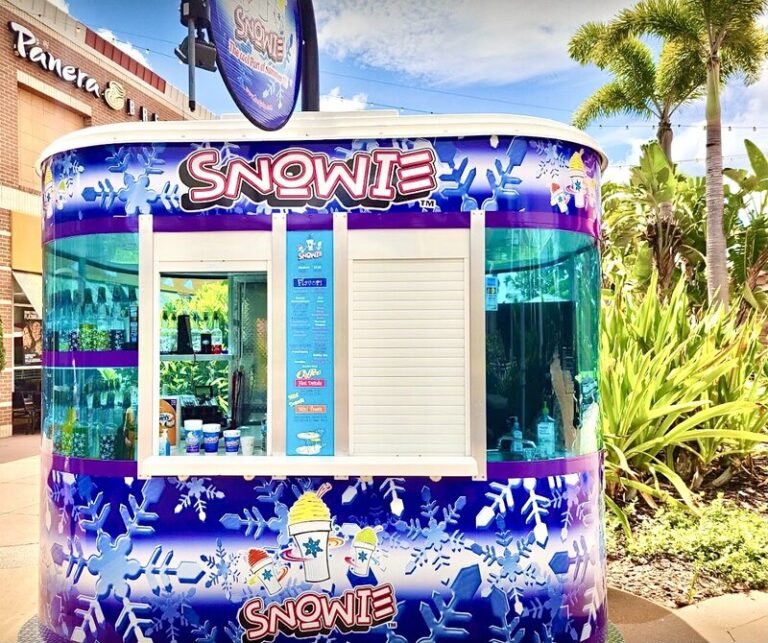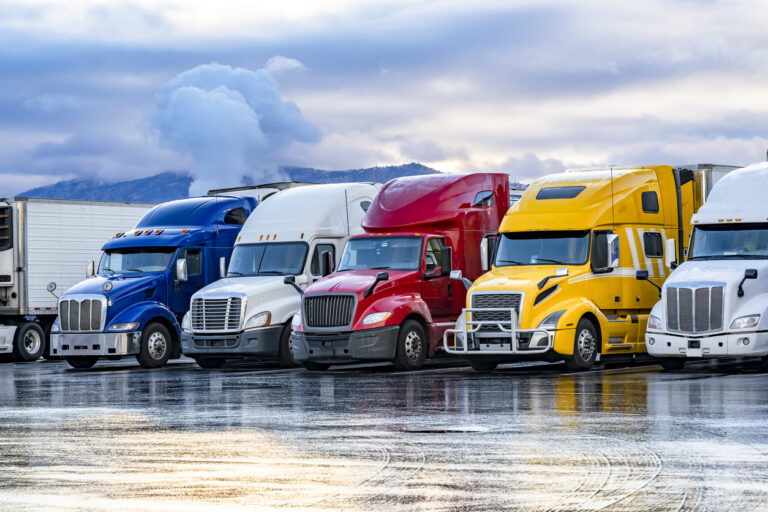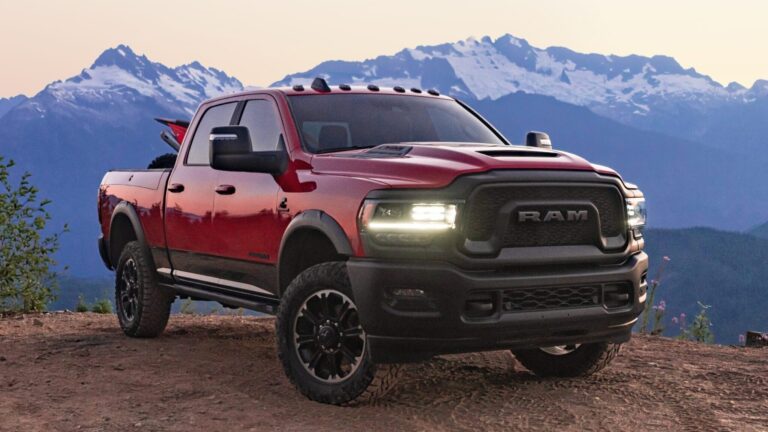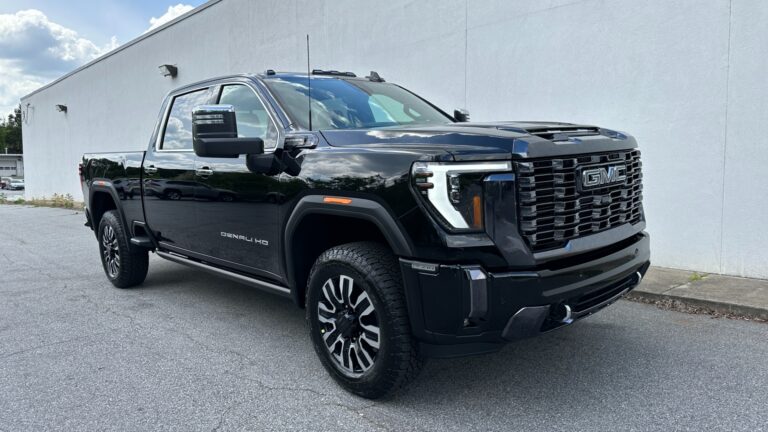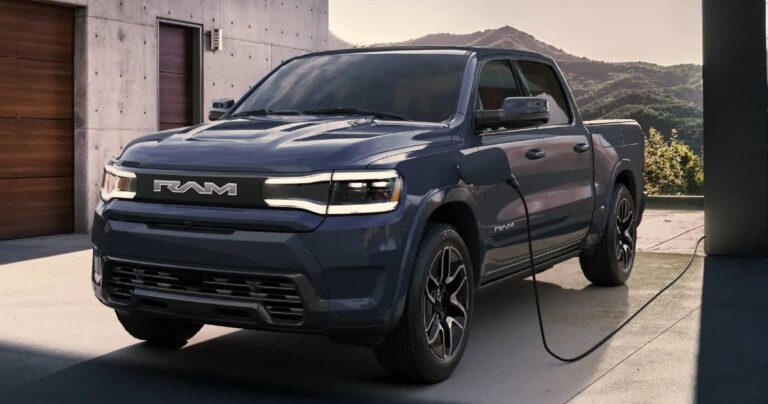Tow Truck For Sale By Owner: A Comprehensive Guide to Smart Acquisition
Tow Truck For Sale By Owner: A Comprehensive Guide to Smart Acquisition cars.truckstrend.com
The world of commercial vehicles often involves significant capital investment, and tow trucks are no exception. For entrepreneurs, small business owners, or even individuals looking to expand their fleet, the phrase "Tow Truck For Sale By Owner" often signals an opportunity for considerable savings and direct negotiation. Unlike purchasing from a dealership, buying directly from the current owner bypasses overheads, sales commissions, and often allows for a more transparent understanding of the vehicle’s history. However, this path also comes with unique challenges, requiring diligence, mechanical insight, and a strategic approach.
This comprehensive guide will delve into every aspect of acquiring a tow truck directly from its owner, equipping you with the knowledge to navigate the process confidently, identify potential pitfalls, and secure a valuable asset for your business or personal use.
Tow Truck For Sale By Owner: A Comprehensive Guide to Smart Acquisition
Why Consider Buying a Tow Truck By Owner? Benefits and Challenges
The decision to pursue a tow truck for sale by owner is typically driven by a compelling set of advantages, but it’s crucial to acknowledge the inherent risks as well.
Benefits of Buying By Owner:
- Cost Savings: This is often the primary motivator. By eliminating dealer markups, negotiation can lead to significantly lower purchase prices compared to dealership listings for comparable vehicles.
- Direct History & Transparency: You’re speaking directly with the person who has owned and operated the truck. This allows for in-depth questions about its maintenance history, operational quirks, reasons for selling, and any issues it may have encountered. This direct line of communication can provide invaluable insights that a dealer might not have or choose to disclose.
- Negotiation Flexibility: Owners often have more leeway and motivation to negotiate on price and terms than a fixed-price dealership. They might be looking for a quick sale, or simply want to move on to a new vehicle.
- Unique Finds: Sometimes, specialized or custom-built tow trucks, or older, well-maintained models, are only available through private sales, offering unique opportunities not found on dealership lots.
- Avoiding Sales Pressure: The private sale environment is typically less pressured than a dealership, allowing you to take your time, conduct thorough inspections, and make an informed decision without feeling rushed.

Challenges and Risks of Buying By Owner:
- "As-Is" Condition: Most private sales are conducted on an "as-is" basis, meaning there’s no warranty, explicit or implied. Once you drive it off, any issues become your responsibility.
- No Financing Options: Unlike dealerships that offer in-house or partner financing, private sellers typically require cash, cashier’s checks, or bank transfers. Securing a loan for a private sale often requires pre-approval from your bank or credit union, which can be more complex for commercial vehicles.
- Potential for Hidden Issues: Without a dealer’s reconditioning process, there’s a higher risk of encountering undisclosed mechanical problems. This underscores the critical importance of a thorough pre-purchase inspection.
- Paperwork and Title Transfer: The responsibility for ensuring correct title transfer, bill of sale, and registration typically falls solely on the buyer and seller, requiring careful attention to detail.
- Limited Recourse: If significant problems arise after the sale, your legal recourse against a private seller is often limited, especially if the "as-is" clause is clearly stated.


Types of Tow Trucks Commonly Found For Sale By Owner
Understanding the different types of tow trucks is crucial for identifying the right vehicle for your needs and for accurately assessing its value. Owners often specialize in particular types, which can influence their asking price and the truck’s overall condition.
- Wreckers (Boom Trucks): These are the classic tow trucks with an adjustable boom arm and a winch.
- Light-Duty Wreckers: Designed for cars, motorcycles, and small vans. Often built on a pickup truck or light commercial chassis.
- Medium-Duty Wreckers: For larger passenger vehicles, light-duty commercial trucks, and RVs.
- Heavy-Duty Wreckers: Massive trucks used for tractor-trailers, buses, and heavy machinery. These are often complex and command high prices.
- Rollbacks (Flatbeds): These trucks have a hydraulic bed that tilts and slides back to allow a vehicle to be driven or winched onto it.
- Standard Rollbacks: Most common type, suitable for various vehicles.
- Integrated Rollbacks: Feature a wheel-lift in addition to the flatbed, allowing for two vehicles to be transported simultaneously.
- Multi-Car Carriers: Longer rollbacks designed to carry multiple vehicles, often with upper decks.
- Integrated/Self-Loader Wreckers: These combine a boom and a wheel-lift into a single unit, making them highly efficient for quick recoveries and towing. They are popular for roadside assistance and repossession.
- Wheel-Lift Trucks: These trucks use a hydraulic boom with a cradle or "L-arms" that scoop up the vehicle’s tires, lifting it off the ground for towing. They are compact and maneuverable, ideal for urban environments or tight spaces.
The Search: Where to Find Tow Trucks For Sale By Owner
Finding the right tow truck from a private seller requires knowing where to look and how to filter your search.
- Online Marketplaces:
- Craigslist: Excellent for local listings. Be prepared for varying levels of detail and a need for direct communication. Use specific keywords like "tow truck," "wrecker," "rollback," "flatbed," and filter by "by owner."
- Facebook Marketplace: Similar to Craigslist but often with better photos and more direct access to the seller’s profile (which can sometimes offer more context). Join towing industry groups on Facebook, as owners often post there directly.
- eBay Motors: Offers a broader reach, sometimes including auction-style listings. Be cautious of distant sellers and always arrange for a pre-purchase inspection.
- Specialized Commercial Vehicle Sites: While many listings here are from dealers, sites like TruckPaper.com, CommercialTruckTrader.com, and IronPlanet.com sometimes have "by owner" filters or individual company listings.
- Industry Publications & Forums: Many towing and recovery associations or online forums have classified sections where members list equipment for sale. These can be valuable as sellers are often knowledgeable professionals.
- Networking: Talk to local towing companies, mechanics, and equipment suppliers. Word-of-mouth can be a powerful tool for finding out when someone is looking to sell.
- Local Classifieds & Signs: Don’t underestimate the power of a "For Sale" sign on a truck parked in a yard or a listing in a local newspaper.
The Inspection Process: What to Look For
This is arguably the most critical stage of buying a tow truck by owner. A thorough inspection can save you from significant post-purchase headaches and expenses. If you are not a seasoned mechanic, always hire a professional, independent heavy-duty truck mechanic for a pre-purchase inspection.
- Documentation First: Before even looking at the truck, ask the seller for:
- Clear Ensure it’s in the seller’s name and free of liens. Verify the VIN.
- Maintenance Records: A well-documented history of service is a huge plus.
- DOT Inspection Records: If it was a commercial vehicle, these indicate past compliance.
- Exterior Examination:
- Frame: Look for cracks, welds (especially poor ones), severe rust, or signs of accident damage. This is foundational.
- Body & Paint: Check for excessive rust, dents, poorly repaired bodywork, or signs of a cover-up.
- Tires: Inspect tread depth, uneven wear, cracks, and age. New tires are a significant expense.
- Lights & Wiring: Test all exterior lights, including amber warning lights, and check for frayed or exposed wiring.
- Engine & Drivetrain:
- Fluid Leaks: Look for oil, coolant, hydraulic fluid, or transmission fluid leaks under the truck and around the engine.
- Startup: Listen for unusual noises (knocking, ticking, grinding). Observe exhaust smoke color (blue indicates oil, white indicates coolant, black indicates fuel issues).
- Fluid Levels & Condition: Check oil, coolant, transmission fluid, and brake fluid. Look for contamination.
- Test Drive: Listen to the engine under load, check transmission shifting (smoothness, delays), brake performance, and steering.
- Hydraulics & Winches: These are the heart of a tow truck’s operation.
- Hoses & Cylinders: Check for leaks, cracks, and wear. Operate all hydraulic functions (boom extension, lift, tilt, winch) multiple times.
- Pump: Listen for unusual noises from the hydraulic pump.
- Winch: Test both winches (if applicable) under a small load. Inspect the cable for fraying, kinks, or damage. Check the fairlead rollers.
- Electrical System:
- Battery: Check terminals for corrosion, and test battery health if possible.
- Alternator: Ensure proper charging during operation.
- Interior Electronics: Test all dashboard gauges, HVAC, radio, and interior lights.
- Interior: Check seat condition, dashboard integrity, and all controls for functionality.
- Under the Truck: Look for worn suspension components, U-joints, exhaust system damage, and rust on the chassis.
Negotiation and Purchase: Tips for a Smooth Transaction
Once you’ve identified a promising truck, the negotiation and purchase phase requires strategy and attention to detail.
- Research Market Value: Before making an offer, research comparable tow trucks (same type, age, mileage, condition) sold recently by both owners and dealers. Websites like TruckPaper and Commercial Truck Trader can provide a good baseline.
- Be Prepared to Walk Away: This is your strongest negotiation tool. Don’t fall in love with a truck before the deal is done.
- Ask Detailed Questions: Beyond the mechanicals, ask about the truck’s operational history, typical workload, why the owner is selling, and any known issues, no matter how minor.
- Start with a Fair Offer: Your initial offer should reflect your research, the truck’s condition, and any anticipated repair costs. Don’t insult the seller with a ridiculously low offer, but leave room for negotiation.
- Get Everything in Writing: Once a price is agreed upon, create a comprehensive Bill of Sale. This document should include:
- Buyer and Seller names and contact information.
- Vehicle Year, Make, Model, VIN.
- Agreed-upon purchase price.
- Date of sale.
- Statement that the vehicle is sold "as-is, where-is" (if applicable).
- Signatures of both buyer and seller.
- Payment Method: For large sums, a cashier’s check or a wire transfer is generally safest. Avoid carrying large amounts of cash. Consider using an escrow service for added security, especially for high-value purchases or if the seller is out of state.
- Title Transfer: Ensure the seller signs the title over to you correctly. Understand your state’s requirements for transferring ownership and registering the vehicle. Some states require immediate transfer, others allow a grace period.
Post-Purchase Considerations
Your journey doesn’t end when you drive the truck home.
- Insurance: Obtain proper commercial vehicle insurance immediately. This is non-negotiable for a tow truck.
- DOT Compliance: If you plan to use the truck commercially, ensure it meets all Department of Transportation (DOT) regulations for inspections, logs, and safety equipment. This can be complex and varies by weight and operation.
- Immediate Maintenance: Even after a good inspection, consider a full fluid change (oil, transmission, differential, coolant), filter replacement, and a general tune-up as soon as possible.
- Customization/Upgrades: Plan for any necessary equipment additions, toolboxes, or branding that you intend to add.
Estimated Price Ranges for Tow Trucks For Sale By Owner
It’s crucial to understand that prices for "Tow Truck For Sale By Owner" vary wildly based on numerous factors: age, mileage, make, model, type (wrecker, rollback, etc.), condition (mechanical and cosmetic), specialized equipment, and regional market demand. The table below provides estimated ranges for common types and conditions, but these should only serve as a general guide. Always conduct your own market research for specific models.
| Type of Tow Truck | Condition (General) | Estimated Price Range (USD) | Key Factors Influencing Price |
|---|---|---|---|
| Light-Duty Wrecker | Fair | $10,000 – $25,000 | High mileage, visible wear, minor mechanical issues, older model year. |
| (e.g., Ford F-Series, | Good | $25,000 – $45,000 | Moderate mileage, well-maintained, some cosmetic wear, reliable operation. |
| Chevy Silverado) | Excellent | $45,000 – $70,000+ | Low mileage, meticulously maintained, newer model year, premium features, excellent cosmetic condition. |
| Medium-Duty Wrecker | Fair | $25,000 – $50,000 | High mileage, significant wear, potential for major repairs, older chassis. |
| (e.g., Freightliner, | Good | $50,000 – $90,000 | Moderate mileage, good maintenance records, some cosmetic flaws, solid mechanicals. |
| International) | Excellent | $90,000 – $150,000+ | Low mileage, very well-maintained, recent reconditioning, specialized boom/winch capacity, newer model. |
| Heavy-Duty Wrecker | Fair | $70,000 – $150,000 | Very high mileage, extensive wear, likely needs significant investment, older powertrain. |
| (e.g., Peterbilt, | Good | $150,000 – $250,000 | Good operational condition, regular maintenance, capable of heavy work, some cosmetic issues. |
| Kenworth) | Excellent | $250,000 – $500,000+ | Low mileage for its class, top-tier build, high capacity boom/winches, meticulously maintained, often custom-built. |
| Rollback/Flatbed | Fair | $15,000 – $35,000 | Older chassis, high mileage, hydraulic issues, significant rust, worn bed. |
| (Light-Duty) | Good | $35,000 – $60,000 | Moderate mileage, operational hydraulics, decent bed condition, minor cosmetic flaws. |
| Excellent | $60,000 – $100,000+ | Newer chassis, low mileage, flawless bed and hydraulics, premium features (e.g., integrated wheel-lift, remote control). | |
| Rollback/Flatbed | Fair | $30,000 – $70,000 | Heavy use, worn components, potential engine/transmission issues, older model. |
| (Medium-Duty) | Good | $70,000 – $120,000 | Reliable operation, well-maintained hydraulics, fair cosmetic condition, suitable for regular commercial use. |
| Excellent | $120,000 – $200,000+ | Low mileage, excellent mechanicals, pristine bed and hydraulics, multi-car capability, advanced features, newer chassis. | |
| Integrated/Self-Loader | Fair | $20,000 – $45,000 | Older unit, high hours, hydraulic leaks, worn components, visible damage. |
| Good | $45,000 – $80,000 | Functional, well-maintained hydraulics, reliable for routine towing, some cosmetic wear. | |
| Excellent | $80,000 – $130,000+ | Newer unit, low hours, pristine hydraulics, remote controls, excellent maneuverability, well-suited for high-volume work. |
Note: "Fair" condition generally implies the truck is operational but will require immediate or near-future repairs/maintenance. "Good" implies reliable operation with typical wear and tear. "Excellent" implies near-new or meticulously maintained condition with minimal issues.
Frequently Asked Questions (FAQ) About Tow Trucks For Sale By Owner
Q1: Is it safe to buy a tow truck by owner?
A1: Yes, it can be very safe and financially rewarding if you exercise extreme caution and due diligence. The key is a thorough pre-purchase inspection by a qualified, independent mechanic, verifying the title, and securing all agreements in writing.
Q2: How do I know if the price is fair?
A2: Research is critical. Compare the asking price to similar tow trucks (same type, year, mileage, condition) sold by both private sellers and dealerships in your region. Online marketplaces and commercial truck listing sites are excellent resources for this. Factor in any estimated repair costs you anticipate.
Q3: What documents do I need for the purchase?
A3: You will need a clear title in the seller’s name, a comprehensive Bill of Sale signed by both parties, and potentially a lien release if there was a previous loan. For commercial use, maintenance records and past DOT inspection reports are highly beneficial.
Q4: Can I get financing for a by-owner purchase?
A4: Traditional lenders (banks, credit unions) may offer loans for private sales, but it’s often more complex than dealership financing. You’ll likely need pre-approval, and the lender may require an appraisal of the truck. Be prepared to pay cash or use a cashier’s check if direct financing isn’t feasible.
Q5: What if the truck has problems after I buy it?
A5: In most "by owner" sales, the truck is sold "as-is," meaning the buyer assumes all risk for post-purchase issues. This is why the pre-purchase inspection is paramount. Unless you can prove the seller intentionally misrepresented the vehicle (which is difficult), your recourse is usually limited.
Q6: Do I need a Commercial Driver’s License (CDL) to operate a tow truck?
A6: It depends on the Gross Vehicle Weight Rating (GVWR) of the tow truck itself, or the Gross Combination Weight Rating (GCWR) if you are towing another vehicle and the combined weight exceeds certain thresholds. Generally, if the truck has a GVWR of 26,001 lbs or more, or if it’s towing a unit that brings the GCWR over that limit, a CDL (Class A or B depending on configuration) is required. Always check your state’s specific regulations.
Conclusion
Acquiring a "Tow Truck For Sale By Owner" presents a unique blend of opportunity and challenge. The potential for significant cost savings and direct insight into the vehicle’s history makes it an attractive option for many. However, the absence of dealer warranties and the "as-is" nature of private sales demand a meticulous, informed approach. By understanding the different types of tow trucks, knowing where to search, executing a rigorous inspection process, negotiating strategically, and handling the post-purchase logistics diligently, you can transform a seemingly risky endeavor into a highly successful and rewarding acquisition. With careful preparation and due diligence, your next tow truck could be found directly from its proud previous owner, ready to serve your business for years to come.

